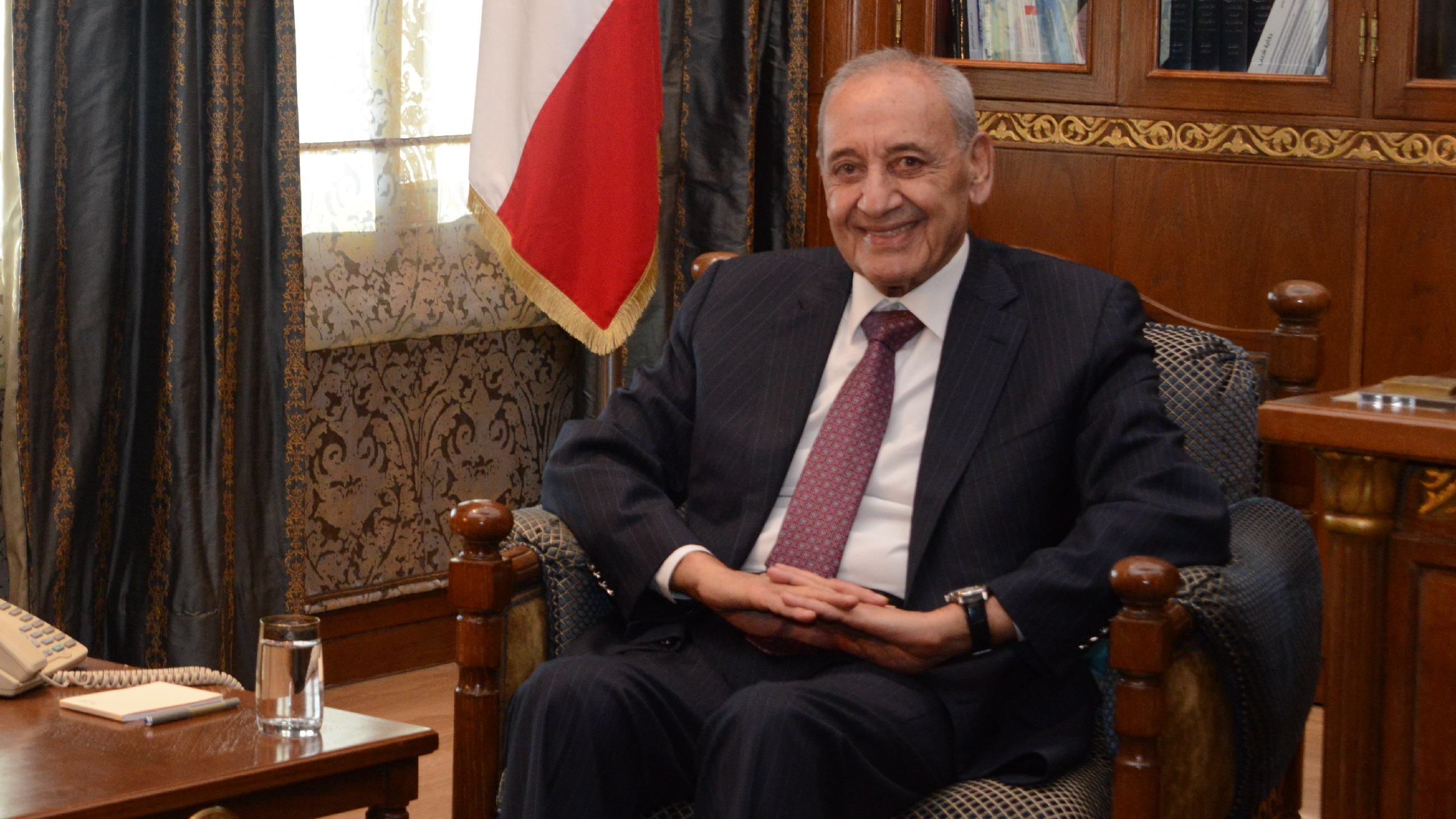Israel Targets Berri?
Nida Al Watan, Lebanon, October 12
A large number of political figures flocked yesterday to Msayleh to express their solidarity with Speaker Nabih Berri, who decades ago built a grand palace there that has since become a symbol of his enduring influence—not only in Msayleh but across Lebanon.
The palace has grown inseparable from Berri’s persona and leadership of the Amal Movement; indeed, Msayleh itself is now mentioned in the same breath as his name, as though the town, which existed long before his birth, has been consecrated in his honor.
For supporters who revere the long-serving speaker of Parliament, in office since 1992, Msayleh represents pride and proximity to power. Yet the recent Israeli airstrikes that destroyed six car dealerships in the area have cast a shadow of embarrassment over this symbolism, particularly given speculation that Israel was targeting Berri himself.
If this claim proves true, the state must act within its capacity to compensate the affected business owners, one of whom estimated his losses at roughly $5 million.
Berri’s entourage, however, appeared visibly uneasy with framing the incident as a direct attack on him. Out of this discomfort, no official statement was issued clarifying that the speaker primarily resides in Ayn al-Tineh—where he has lived uninterrupted for 33 years—and not in Msayleh.
Had such a statement been made, it might also have reminded the public that Berri’s proud birthplace is Tebnine, a southern town near the Israeli border, home to a Crusader-era fortress that still stands tall.
Berri would likely have never left Tebnine had it not been enveloped by the Israeli-occupied “security strip” established in the 1970s, when Palestinian militias dominated the area. That occupied zone’s boundaries nearly reached Tebnine until Israel’s withdrawal in 2000.
This context makes it clear that linking the Msayleh raids—distant from both Ayn al-Tineh and Tebnine—to Berri’s palace is misplaced and, perhaps, politically motivated.
Give the gift of hope
We practice what we preach:
accurate, fearless journalism. But we can't do it alone.
- On the ground in Gaza, Syria, Israel, Egypt, Pakistan, and more
- Our program trained more than 100 journalists
- Calling out fake news and reporting real facts
- On the ground in Gaza, Syria, Israel, Egypt, Pakistan, and more
- Our program trained more than 100 journalists
- Calling out fake news and reporting real facts
Join us.
Support The Media Line. Save democracy.


What remains to be answered, however, is the true motive behind Israel’s strikes, which it predictably justified as attacks on “Hezbollah infrastructure.”
A media outlet aligned with the resistance—anchored by the Amal Movement and Hezbollah—offered a different interpretation that could shed light on the timing of these raids. The outlet connected them to the visit of Syrian Foreign Minister Asaad al-Shaibani to Lebanon two days earlier.
It reported that Lebanese security officials were incensed by what they described as deliberate insults and physical altercations initiated by members of al-Shaibani’s security detail during the visit—an affront the government allegedly ignored.
According to the outlet, this silence signaled weakness at a moment when Lebanon and Syria are negotiating sensitive issues that require a firm defense of Lebanese sovereignty.
A retired statesman even suggested that the Syrian minister’s visit might have included quiet discussions about Lebanon’s electoral law, a recurring point of Syrian interest in past decades.
Berri’s decision to declare the debate over amendments to that law closed, he added, may have been perceived by Damascus as a deliberate rebuff, especially given that Berri did not schedule a meeting with al-Shaibani.
This report raises new questions about the alleged “assaults” by the Syrian delegation and the broader implications of Lebanon’s electoral law debate.
Could the controversy surrounding the law, which some claim unsettled both Syria and Israel, truly be linked to the Msayleh airstrikes?
The theory may seem far-fetched, yet some insist it holds weight: Israel, outraged by Berri’s objections that effectively disenfranchised hundreds of thousands of Lebanese expatriates, viewed his stance as one that deprived anti-Hezbollah forces—Tel Aviv’s natural allies—of potential representation.
From that perspective, the election law could indeed have provoked Israel’s ire. Whether one believes this or not, the underlying reality is sobering: Lebanon once again finds itself entangled in the overlapping ambitions of regional powers—Syria, Israel, and the networks of the resistance.
The pretext of the “electoral law,” if taken seriously, has dragged both Damascus and Tel Aviv into Lebanon’s political theatre at a time when the country can least afford it.
After years of devastation linked to Hezbollah’s arsenal and the cycle of conflict it sustains, Lebanon is ill-prepared for another escalation born of political maneuvering.
Perhaps, then, it is time for the speaker himself to take precautions. Should Nabih Berri, like his late ally Hassan Nasrallah—who lived in secrecy from 2006 until his death last year—consider relocating from Ayn al-Tineh to an undisclosed location?
The question is worth pondering.
Ahmed Ayash (translated by Asaf Zilberfarb)

